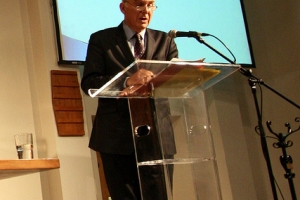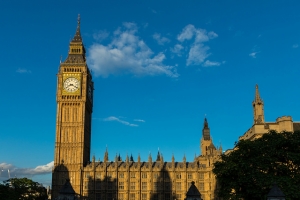Support migrant centric journalism today and donate

A respected political commentator has warned that the UK's Conservative Party, headed by Prime Minister David Cameron, may lose power at the next election in 2015 because it's policies are unpopular amongst immigrant voters.
Mary Riddell, who has written for many of the UK's national newspapers including The Guardian, The Daily Mirror and The Daily Telegraph says that the Conservatives' immigration policies are unpopular amongst British citizens from ethnic minorities which may have unintended electoral consequences.
The Conservatives currently attract only 16% of ethnic minority voters, and this she says is because of the Conservatives immigration policies.
Labour has strong lead in 'ethnic minority areas'
In constituencies where there are high numbers of ethnic minority voters, particularly British Asians, the opposition Labour Party holds an average lead of 16% over the Conservatives.Some of the electoral advantage that the Labour party enjoys may be because first generation migrants tend to earn less than those who were born in the UK and may therefore favour the left-of-centre Labour Party through perceived self-interest.
But some of the electoral disadvantage may be due to Conservative party policy on immigration. Mrs Riddell draws comparisons with the US where the Republicans lost the last election, many commentators believe, because of their tough stance on illegal immigration which was alienated many people in the Hispanic community who might otherwise have voted Republican.
US Democrats have advantage among ethnic minorities
At the 2012 presidential election, only 3m of 11m Hispanic voters voted for the Republicans and 8m voted for President Obama's Democrats. Mr Obama won the popular vote in that election by just under 5m votes suggesting that the Republican Party illegal immigration policy was pivotal in handing power to Mr Obama.Mr Cameron believed that anti-immigration' policies and rhetoric would be popular amongst voters. Anti-immigration sentiment was running high in the run-up to the last general election in 2010. In the 13 years of Labour rule between 1997 and 2010, the immigrant population of the UK doubled to 13% of the population. This had led to a rise in concern about the issue in the opinion polls.
This was why Mr Cameron, then leader of the opposition, promised in a BBC interview in January 2010 to cut 'net annual immigration' into the UK to below 100,000 a year by 2015 if he became prime minister.
Cameron's policies 'unpopular with ethnic minorities'
Mr Cameron's Conservatives won the largest number of seats at the 2010 election but failed to win an overall majority. Mr Cameron became Prime Minister at the head of a Coalition government. Since coming to power, the Coalition has introduced numerous policies designed to cut net immigration. Some of these policies have been unpopular with immigrant communities.In particular, the Coalition has introduced a rule that no British citizen can bring a foreign spouse to live and work with them in the UK unless the British citizen is earning at least £18,600 per year.
While many UK citizens have been affected by this policy, it was seen by some as an attempt to prevent British citizens of Indian and Pakistani descent from bringing in spouses from the sub-continent.
Tier 1 (General) visa
The Coalition also closed down the Tier 1 (General) visa stream which allowed educated foreign citizens, generally graduates, to live and work in the UK. The Coalition said, with some justification, that many Tier 1 (General) visa holders were working in low-paid positions as mini-cab drivers and security guards and were not, therefore, doing the type of work expected of them as Tier 1 visa holders.Other policies included;
- the imposition of a cap of 20,700 annually on the number of Tier 2 (General) visas for skilled workers that could be issued
- The closure of the Tier 1 (Post Study Work) visa stream which allowed foreign graduates of UK universities to work in the UK for two years after graduation
- A crackdown on bogus colleges. Some 700 colleges have lost the right to sponsor students from outside the EU for Tier 4 student visas.
'Tens of thousands' pledge is 'dangerous'
Mrs Riddell suggests that Mr Cameron's election pledge to cut net immigration to below 100,000 annually is dangerous for three reasons- It is beyond his control. The UK is part of the EU. This makes it very easy for EU citizens to live and work in the EU. As the UK economy recovers, workers from the EU are flooding to the UK to work. Net annual immigration rose by some 60,000 in the year to September 2013 to 212,000 a year. This is despite the fact that Mr Cameron's government has been introducing 'anti-immigration' policies
- If the government were to succeed in hitting its target, it would be extremely bad news for the economy. 'Taxes would go up, net wages would drop by more than 3 per cent, the NHS would collapse overnight [and] university funding would dry up', Mrs Riddell suggests.
- The government is failing to lead public opinion on immigration, as it should, Mrs Riddell suggests. As a result, it is opening the door for the right-wing, anti-immigration UK Independence Party to increase its support by playing on the electorate's fears. UKIP support recently hit an all-time high at 15%.
Labour 'hamstrung' on immigration
Mrs Riddell says that the Labour Party is hamstrung in its opposition to the Conservatives because it is forced constantly to apologise for its management of immigration between 1997 and 2010.She says that the UK needs a politician who will 'say the unsayable' and admit that immigration is beneficial to the UK.
If you would like to apply for a visa WorkPermit.com can help. WorkPermit.com is a specialist visa consultancy with 25 years of experience dealing with visa applications. We can help with a wide range of visa applications to your country of choice. Please feel free to contact us for further details.





















